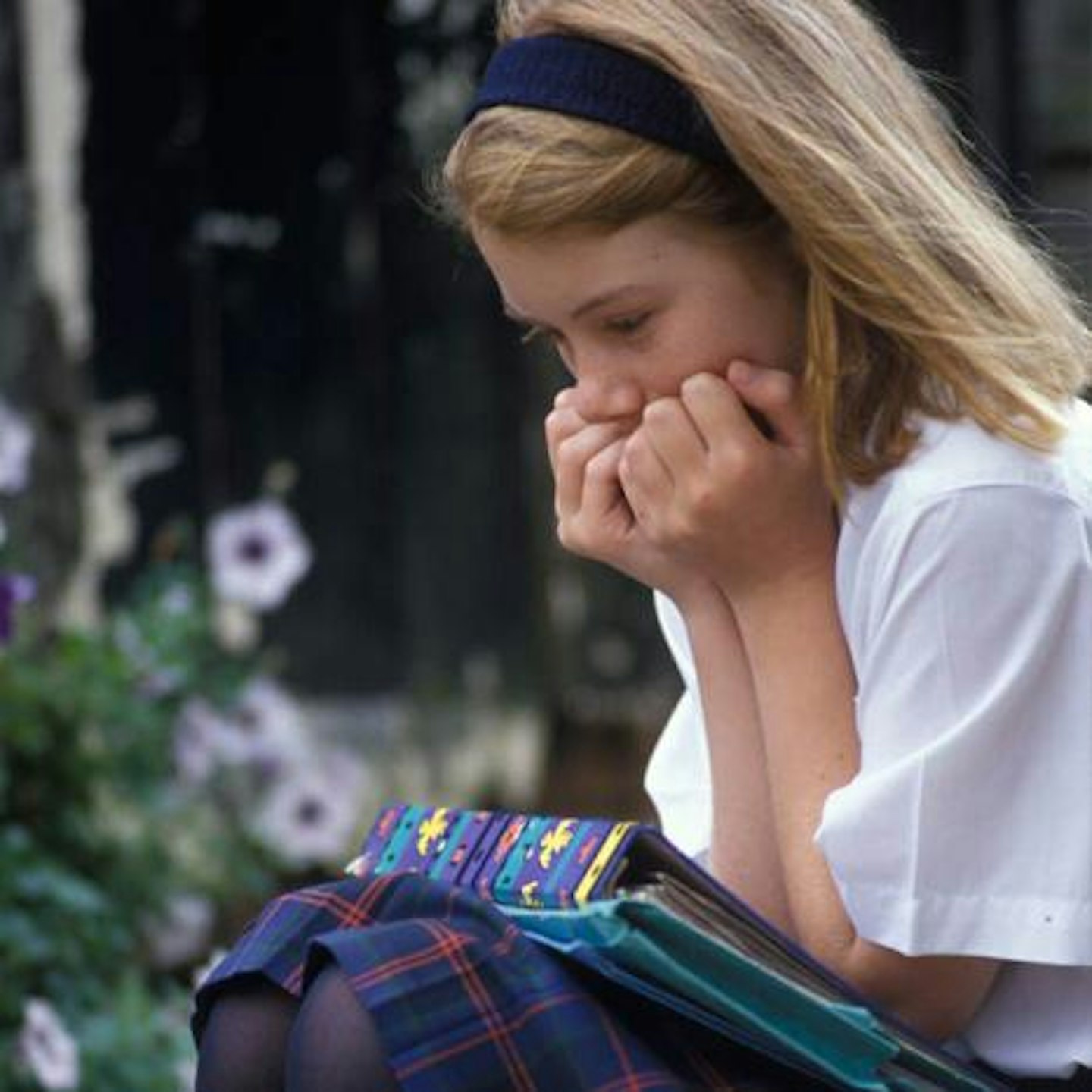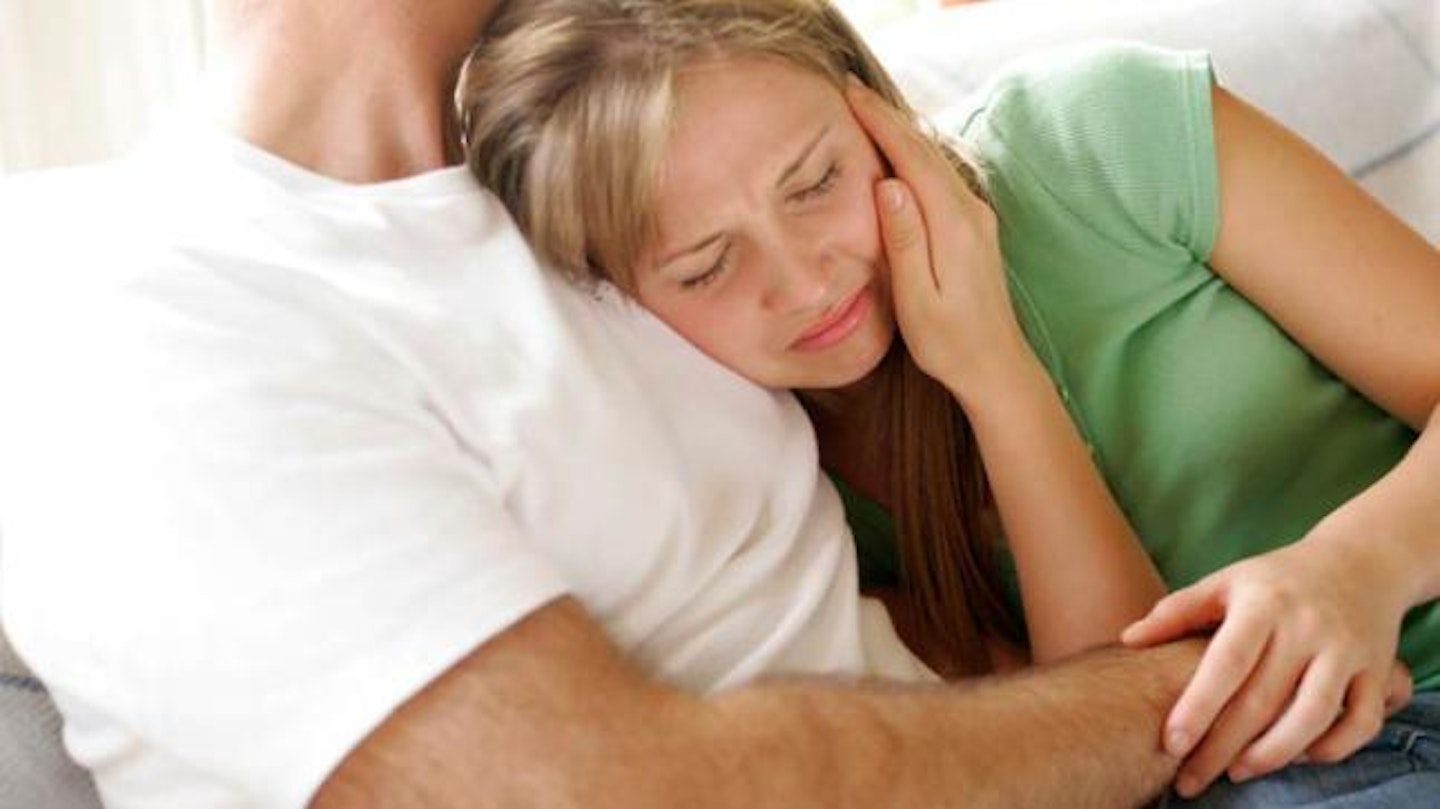Being bullied at school, home or online can happen to anyone, at any age, but, as many parents will tell you, the majority of children (particularly boys and teens) will not tell their parents they are vbeing victimised. So how do we know if our child is the victim of bullying?
Here's a guide to recognizing the signs of bullying, and advice on how to make it stop.
WHAT IS BULLYING?
Bullying can take many forms, can be committed by anyone (young or old) and can happen TO anyone. But, while many suppose bullying is all about physical intimidation, there's a lot more to it than that..
Bullying is:
-
Being called names, being put down or humiliated, either in person, via text or online
-
Being teased
-
Being pushed or pulled about
-
Having money and other possessions taken or messed about with
-
Having rumours spread about you
-
Being ignored and left out
-
Being hit, kicked or physically hurt
-
Being threatened or intimidated
-
Being sent scary or rude messages by mobile phone
-
Being sent unpleasant photographs by mobile phone
-
Receiving cruel messages via online message boards, chat rooms or social networking sites
-
Having images, rumours or lies spread over the internet
POSSIBLE WARNING SIGNS
Bullying can cause severe emotional harm, damaging your child’s self-esteem and mental health; it can cause them to experience lower self-esteem, loneliness, anxiety and depression. And, in some extreme situations, a child can become so overwhelmed by the bullying that they begin to self-harm; they may even take their own life, as was seen in the tragic case of Hannah Smith.

Bullying is always intentional, rarely happens only once and there is always a power imbalance, whether due to physical size or social power. The victim cannot hold his own and often will need adult help - but they may be too scared to ask for it. However, while your child may not be ready to tell you they are being bullied, there are several warning signs you can look out for...
-
Is your son or daughter unwilling to go to school?
-
Do they often claim they are feeling unwell, often with a headache?
-
Does your child seem irritabile, anxious or aggressive towards you or others in your family?
-
Have they begun bedwetting, experiencing bad dreams or waking in the night?
-
Do they come home with torn, damaged, or missing pieces of clothing, books, or other belongings?
-
Do they have unexplained cuts, bruises, and scratches?
-
Do they seem upset after receiving a text or going online?
-
Do they have few, if any friends, with whom he or she spends time?
-
Have they lost interest in school work or suddenly begins to do poorly in school?
-
Do they appear sad, moody, teary, or depressed?
WHAT TO DO IF YOU THINK YOUR CHILD IS BEING BULLIED
****If you have good reason to believe your child is being bullied, it's time to take action - you should never ignore the situation and hope it sorts itself out.
-
Make time to talk about it
Find a quiet time to talk to your child, when there is little around to distract you from the task at hand. Try asking them how things are going at school, explain that you are worried about them and encourage them to open up about their problems.
Some children may find it hard to talk about it and may not respond well to direct questioning. You may not want to ask them straightaway if they are being bullied, but rather ask questions about their day, see if their behaviour has changed, how they’re feeling and give them time and opportunities to talk to you about it. If your child has difficulties in explaining what is happening to them and/or communication difficulties, you may need to use different ways to communicate with them - keep things vague and play "what if" scenarios to encourage them to open up.
-
*Do not be dismissive
*It can be difficult to relate to bullying, especially when it is described in terms of "they tease me" or "they post mean things about me on Facebook"; if it is affecting your child, it should affect you. Remain sympathetic, ask questions to keep the conversation going and do not tell them to ignore the situation.

-
*Remain non-judgemental
*Many children find it difficult to open up to their parents about bullying or abuse, particularly if they feel the will get in trouble for something through doing so. If, for example, your teenage daughter sent a topless photo of herself to a boy but soon found that the image was circulated around the school, would she feel comfortable telling you about her initial mistake?
Here is a little firsthand advice crom the mother of Hope Witsell, a 13-year-old girl who hanged herself after topless photos went public at school: “You set rules and boundaries in the household. You punish them and then you let it go. You love them. You continue to talk with them, you continue to try to keep that line of communication open, but most of all you continue to love them. You don’t shame them.”
-
Promise to take action
Explain that bullying is unacceptable and that no one should have to put up with it. Promise to do all you can to stop it. And, most importantly of all, make an appointment to see your child's class teacher as soon as possible.
**HOW TO APPROACH THE SUBJECT OF BULLYING WITH YOUR CHILD'S TEACHER
**
If you've decided to meet with your child's teacher, make sure you decide what you want to say and what you'd like to achieve from the meeting before you go. Remember not to blame the teacher - he or she may be unaware of the bullying - and keep a cool head; try to give specific examples of how your child is being bullied, rather than allow your emotions to get the better of you.
Ask what the school's anti-bullying policy is and discuss what action the teacher will take. It is a good idea to arrange to meet again within two weeks to discuss progress and to monitor your child's progress so that, if you're unhappy with the way your child's teacher deals with the situation, you can make an appointment to see the head teacher.

BullyingUK also offers the following advice: "Keep a bullying diary and write down every incident as soon as possible after it happens. Include the date, what happend, who did it and who saw it. Include the effect on your child, whether your child told anyone and what they said or did and any later effects. Tell the school each time. Write down what they say or do and any effect their actions have. If your child is hurt, take photographs and see your doctor (and the police if the assault is serious)."
USEFUL WEBSITES TO CHECK OUT
****The following websites offer excellent advice for parents and children on the subject of bullying:
DO YOU HAVE ANY TIPS ON HOW TO DEAL WITH BULLYING? LET US KNOW VIA OUR COMMENTS BOX BELOW NOW.
